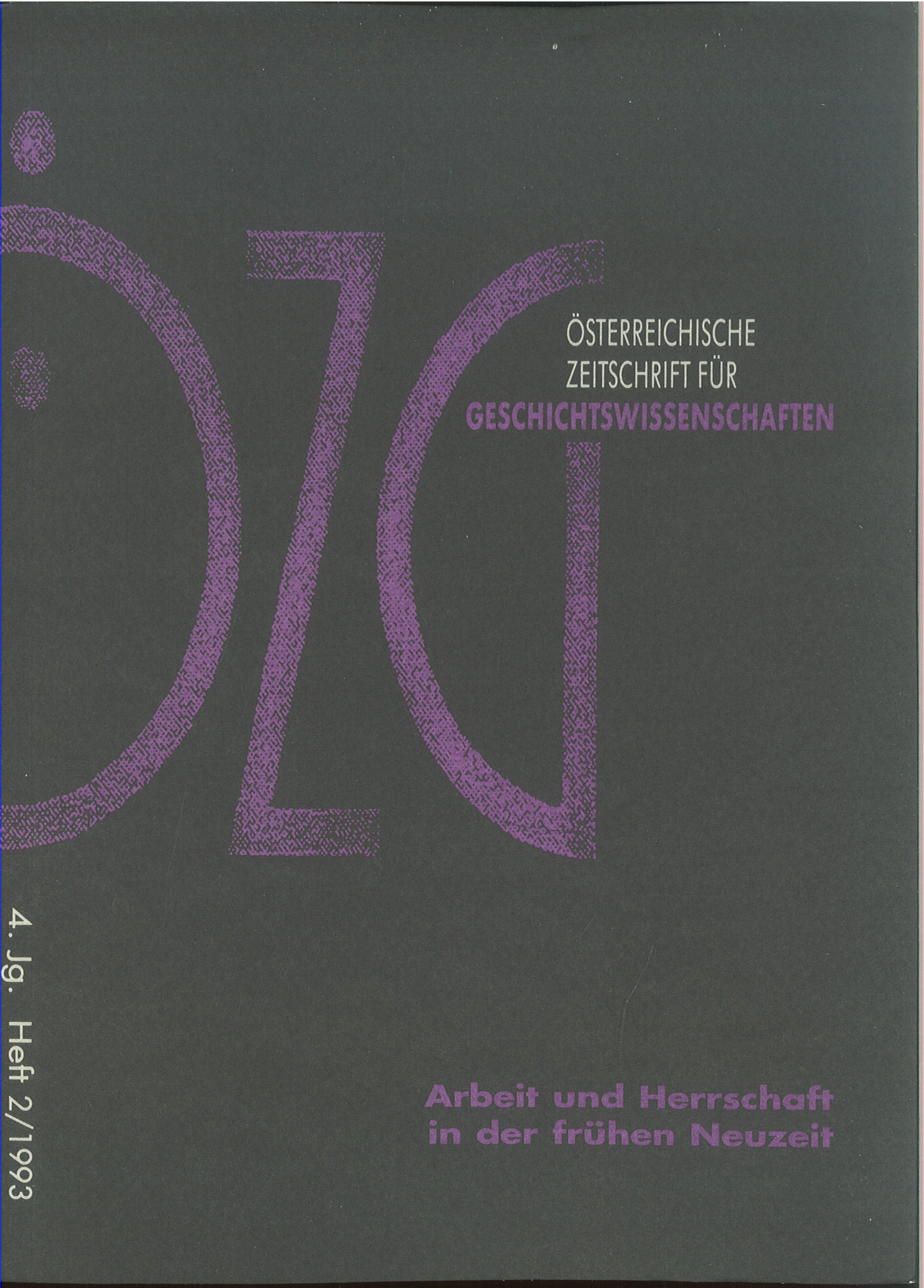Frondienst und Mehrwert im der preußischen Gutswirtschaft
DOI:
https://doi.org/10.25365/oezg-1993-4-2-4Abstract
The contribution of the Junkerherrschaft, the Prussian manorial system east of the river Elbe, to the modernization of Germany in the late nineteenth century has been an ongoing subject of historical debate for decades. By discussing a series of articles by William Hagen, the author challenges Hagen's thesis, according to which landlords as well as their subject peasants benefitted from changes within the Prussian manorial system of the seventeenth century, a mutually satisfactory bargain, in the course of which the peasants accepted a higher rate of labour services for a reduction in rental dues. Hagen's argument, that the decrease in rents and the increase in labour services meant an advantage for both peasants and landlords is dismantled by Rebel, who by reevaluating and reinterpreting Hagen's own evidence sketches a picture of drastic disadvantages which the peasants had to face under the new arrangement of increased labor services. Applying Eric Wolf's model of historical social relations, Rebel then sets out to show the effect of these developments in the sphere of family formation of the aristocratic dynasty and the peasant household. Dictated by the labor need of the manorial estates the latter are forced to constitute themselves in pseudo- and ad-hoc-families, which have to make unending choices of exclusion and dispossession of „uneconomical" and marginal family members. According to Rebel a pattern is developing, a hidden war between those who like the aristocracy form dynastic families and those who like the peasants cannot form families that last.


